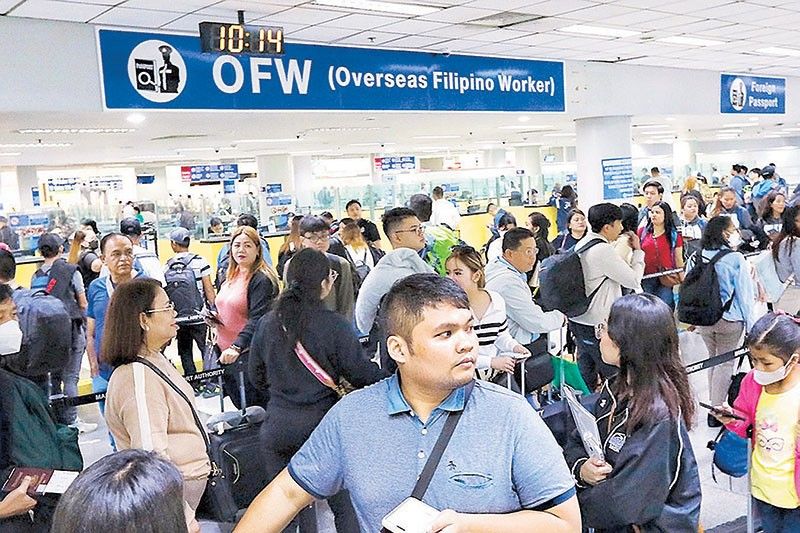WTO calls for lower remittance fees

GENEVA – Economies still have a lot of work to do in bringing down remittance costs globally to three percent by 2030 and ensuring that the reductions translate to improvements in people’s welfare, according to experts.
World Trade Organization (WTO) deputy director general Xiangchen Zhang said the issue of cutting remittance costs remains a vital concern for developing countries, including the Philippines.
Zhang noted that discussions at the WTO on how the multilateral body could help achieve the Sustainable Development Goal (SDG) of cutting remittance charges remain in infancy.
The WTO official pointed out that not all members of the multilateral body are “on the same page” when it comes to the issue of remittance costs, citing the need to intensify “awareness” on the matter.
“This is a special issue for the Philippines and developing countries. The WTO cannot achieve this goal alone,” Zhang told reporters in a recent press briefing here during the ongoing public forum hosted by the multilateral body.
“We need to collaborate with other (international organizations) and banks. We need more discussions, collaborations, technical assistance, transparency and digital technology to help developing countries reduce remittance costs,” he added.
The United Nations said a reduction in remittance costs may raise the disposable income of remittance-receiving families worldwide by about $20 billion annually.
Global remittance costs stood at 6.35 percent as of the first quarter, based on World Bank monitoring.
Jeremaiah Opiniano, head of the University of Santo Tomas-Research Center for Social Sciences and Education, said the average remittance cost in the Philippines is below the global average and is nearing the SDG target.
The World Bank data showed that the average remittance cost in the Philippines stood at 3.65 percent as of the first quarter.
“The Philippines, for example, can claim that this country is (almost) meeting the SDG goal for the lowest average remittance and is (almost) meeting the SDG goal for the highest average remittance,” Opiniano, who is also the executive director of the Institute for Migration and Development Issues, told The STAR.
However, Opiniano emphasized that what is more important is how remittance-receiving families use the money for “more strategic consumptive and productive purposes.”
He pointed out that if people’s financial behaviors do not change toward productive measures, then it will negate whatever reductions in remittance charges there are.
He also noted that Filipinos do not care how much the remittance charge is as long as the remittance provider gives them convenience, speed and reliability in the service.
“The hunch then was that more remittance charge reductions would lead to more money sent home. That remains to be empirically tested,” he said.
“Because in the end, it is about how that remitted money is used – and how the migrant family finds economic and emotional returns with the (aspired) strategic use of overseas remittances,” he added.
The Bangko Sentral ng Pilipinas earlier said that personal remittances reached an all-time high of $37.2 billion last year, accounting for 8.5 percent of the country’s gross domestic product.
The latest discussion on remittances at the multilateral level was during a seminar conducted last March as proposed by India, the Philippines and South Africa. These developing countries receive substantial amounts of remittances annually.
- Latest
- Trending


























